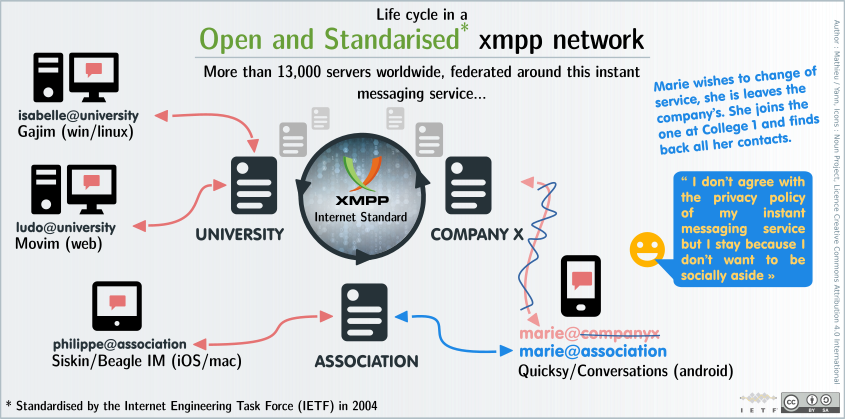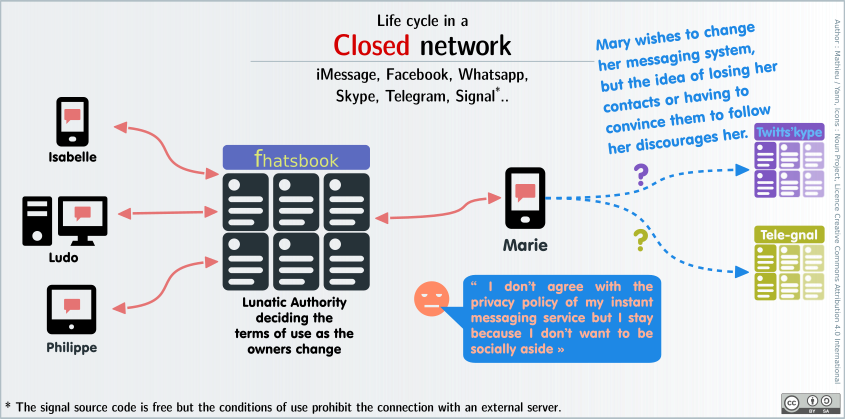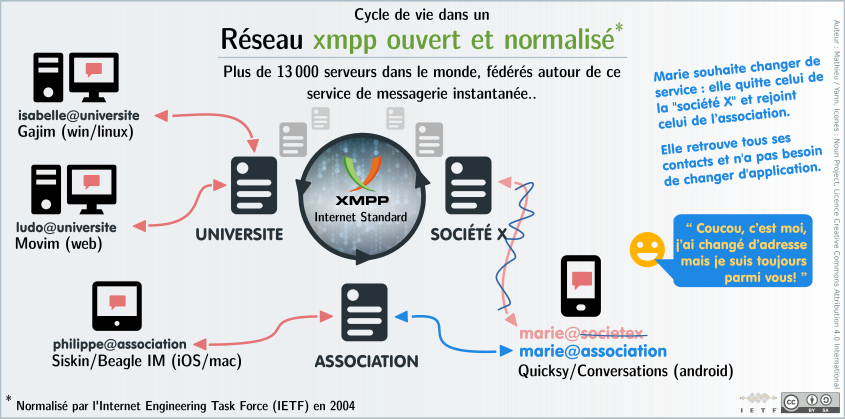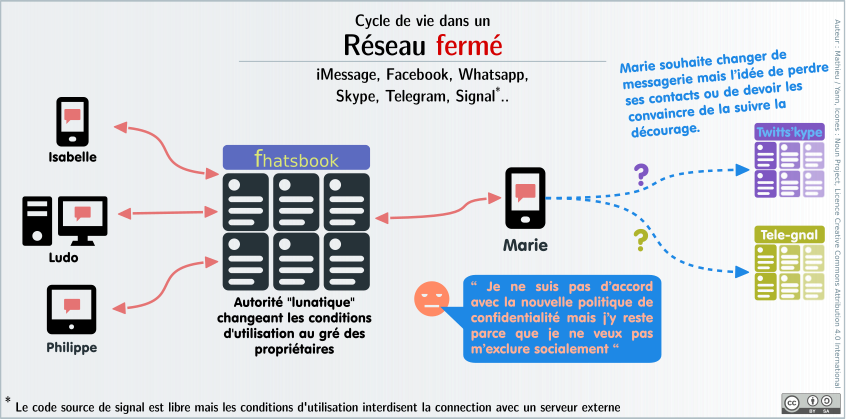I am saddened that I need to write this post, but I need to make a public confession.
After Jean-Philippe Paradis, a Common Lisp programmer better known online as Hexstream, requested me to review his "extensive contributions" to the Common Lisp ecosystem, he seems to have disliked my reply so much that he has declared me the single biggest threat to the Common Lisp community right now.
(A gist copy of the review is here for people who would rather avoid browsing the full issue.)
The review has appeared after yet another discussion thread on GitHub - originally about implementations of Clojurelike arrow macros in Common Lisp - has been derailed by Hexstream in the traditional way in which he derailed many [1] other[2] GitHub[3] discussions[4]: asserting as a logical fact that his preferences take precedence over other people's preferences, aggressively calling out other people for questioning this state of matters, and finally playing the victim card of being silenced, censored, and tortured by a so-called Common Lisp Mafia.
Unlike during the past few times, this time I have decided not to give up posting. On the contrary, I have spend a considerable amount of my personal time (including one all-nighter) to actually respond to every single post of Hexstream, analyze it, take it apart into individual claims that he is making, and refute every single false point that I could find to the best of my ability using the full extent of my available tools.
After several posts of increasing angriness exchanged with Hexstream, in which discussion I have once again tried to coerce him into changing his course and stop being an aggressive offender towards members of the Common Lisp community, and after being explicitly invited to analyze Hexstream's contribution to the Common Lisp community in a tweet of his, I replied to his request with an analysis of the public data collected from GitHub, Quicklisp and Hexstream's public CV. Hexstream has announced multiple times that he is proud of this information and there is nothing to hide there; no, quite the contrary. Hence, I felt welcome to use it and see for myself what kinds of prominent contributions of his I must have missed.
It seems that my analysis of that data was not well-received; Hexstream disappeared with a mere "see you in 2021" comment, stating that he has projects with higher priorities to work on at the moment, and simply replied on GitHub that "my posts contain countless factual, logical and other errors". Afterwards, his Twitter contained this.

Welp.
(with-irony "
It seems to me that I must have thought the unthinkable. (How could I have said that he is not a Common Lisp expert and a fraud? How was it even possible!?) Moreover, I then dared to say it aloud. Worst of all, I even backed it all with solid, concrete, data-based evidence that cannot be immediately refuted as a mere opinion and requires some serious figuring out of how to turn it around so that the Common Lisp Mafia is guilty for all the facts that I've noted.
All of a sudden, after posting this single post, I have become the main threat to the whole Common Lisp community, declared impossible to directly and indirectly fund in an ethical manner, and then proclaimed to require immediate medical attention of psychiatric nature.
Oh goodness. I assume that the analysis must have been way too short for his liking. I regret that I have not found the time to go into his GitHub issues in detail...
")
So, Hexstream. If you're reading this, I hope that my review serves as a proper wake-up call for you to actually see that your behavior is off and needs adjustment in order for other people to actually consider you acceptable in the Common Lisp community. If it does not, I have done everything to actually try and help you as a fellow Common Lisp hacker. I can, and will, do no more in this matter, and will instead do everything to protect the people I respect, like, and cooperate with from your destructive influence.
You are planning to launch some kind of Common Lisp Revival 2020 Fundraiser soon. I would like to tell you that I consider you to be the wrong person to launch one: not even for any of the aforementioned reasons, but for the reason that to you, Common Lisp seems to be a completely different language than it is to me. Based on the above review that you have requested me to do, it seems that you perceive Common Lisp as a strictly single-player language where you have to struggle against countless feats and enemies on Twitter, GitHub, and wherever else, in order to produce anything of even the smallest value after grand feats and massive effort to struggle against censorship.
On the contrary, I know many people who consider Common Lisp to be a multiplayer language where people support one another, are eager to help each other, share knowledge, indulge in fascinating projects that would be tough to indulge in with other languages and, best of all, are not hostile towards one another at the smallest hint of suspicion. Some of those people form the Common Lisp Foundation that, in my opinion, should take over any kind of Common Lisp revival fundraisers.
Obviously, all other reasons from my analysis why you are not entitled to represent the Common Lisp community as head of such a fundraiser still apply. And they are much more damning than the worldview issue above.
- Your claimed commercial expertise in Common Lisp is void.
- Your fifteen years of overall experience in Lisp have no basis in actual code.
- Your projects larger than micro-utilities have been so poor that, as you claim, you have disposed of them yourself.
- Your micro-utilities do not have a single dependent in the main Quicklisp distribution and they do not show signs of actual use by programmers.
- Your documentation projects are generally not acceptable in the Common Lisp community because they are encumbered by the implicit unbearable personality of their author.
- You have not contributed a single line of code to any GitHub repository hosted by anyone else throughout your eight and a half years of presence on GitHub and fifteen years of overall programming experience that you claim to have.
- You derail GitHub conversations with offensive and aggressive comments, indulge in Twitter rants containing more offensive and aggressive comments, and tie them together with your personal website containing even more offensive and aggressive comments.
- You repeatedly defame various honored and respected members of the Common Lisp community, including Rainer Joswig, Michael Fiano, Daniel Kochmański, Stas Boukarev, and Zach Beane. And, I guess, me.
- Oh, about Zach! have I mentioned https://xach.exposed ?
And to top it all, after the above analysis was posted, instead of fulfilling my hopes and responding to this critique of your Lisp merit by indulging in meritocratic discussion about your technical contributions to the Common Lisp ecosystem, you instead immediately announced that I require psychiatric help.
For completeness, I do have to admit: you have been popularizing crowdfunding among Lispers and achieved visible success there, with multiple authors and repositories adopting various means of crowdfunding (GitHub Sponsors, Patreon, LiberaPay) thanks to your efforts and suggestions. This is the one single thing that I can unambiguously consider a net positive coming from you. That's all.
Other than that, I do have to repeat what I have said at the end of my analysis. You try to pose as a Common Lisp expert. No, with all of the above I have no reasons to claim that you are one. Your expertise is hollow. Your experience seems false. You pretend to be someone you are not. You are a scam, Hexstream, and I am saddened and torn that I need to speak these words because I sincerely wish you were not.
The earliest Lisp commit that I was able to find in my GitHub repositories is from November 2015. That is exactly five years ago. In 2015, I was getting frustrated over Emacs keybindings. In 2015, you were "exposing" Zach Beane. Through these five years, I was learning Lisp to the best of my ability. Through these five years, you were doing I have no idea what. I can only guess based on what I see.
And I see Twitter rants. I see GitHub issue derailments. I see self-announced policies that contradict one another. I see tiny Lisp libraries with zero users. I see no other Lisp code of yours. I see no code of yours in any other GitHub repositories. I see big claims backed by nothing. I see an image of a Common Lisp expert that is so fragile that it falls into pieces after a brief glance.
Seriously, what were you doing with your life during these years? Researching ethics? Verifying the boundaries set by Twitter and GitHub moderation teams? Fighting for your life while the Common Lisp Mafia caged you and demanded a ransom of 20,000,000 US parentheses for your freedom?
I simply cannot comprehend it. And I do feel sorry for you, since most likely neither can you.
If you are still reading, please answer one question that I will ask at the end of this block of text. I will attempt to be somewhat honest regarding myself in the topic of my own impact on the Common Lisp community, as I see it. No boasting too much, not being too humble. Let's try it.
I have attempted to complete the Common Lisp UltraSpec which I talked about at an European Lisp Symposium one time and then failed miserably at this task after grossly misestimating it. I have implemented package-local nicknames in Clozure Common Lisp and then used the momentum from that work to make a portability library for package-local nicknames. I have managed to rewrite and optimize the somewhat famed split-sequence system commonly used in the Common Lisp ecosystem. I have managed to overhaul the even more famed Lisp Koans by rewriting them almost from scratch and fixing multiple compliance errors. I have successfully convinced Massachusetts Institute of Technology to release the Common Lisp WordNet interface under a permissive license (which took only half a year of pinging people via mail) and fixed it up as appropriate. I have written a utility suite for managing protocols and test cases with some documentation that I am proud of even after two whole years. I wrote an implementation of Petri nets in Common Lisp that seems either to work fine or not to be used at all, because I do not get much attention from it; still, I've tested it (hopefully) well enough to be useful in the general case. I recently wrote the fastest priority queue available in Common Lisp after someone mentioned that the ones on Quicklisp are too slow. I then ended up miserably failing at rewriting the Common Lisp arrows system, which resulted in a different system with a tutorial for arrows that I have received several thanks for. And then there's some smaller libraries that might not be all that mentionworthy.
I have been hosting the Online Lisp Meeting series which have met general acclaim and popularity and are considered a worthy continuous extension of the ideas of the European Lisp Symposium - even if, in my opinion, they contain a bit too much CL content, compared to the ELS ideals and statistics. The eleventh installment is bound to happen this week, where I will speak for the second time - again about the topic of control flow and condition systems. I already have two more talks queued up and we plan on going until the next European Lisp Symposium, which will most likely eat up all of the available talks and then some. (Maybe some of the rejected papers will sublimate as OLM videos though?... I sincerely hope so! ELS recently had to reject papers not because they were bad, but because they had an already full schedule.)
With help of countless people helping me on various stages of the book lifecycle and with support from Apress Publishing, I have managed to release the book The Common Lisp Condition System along with a pair of accompanying Common Lisp systems, the larger Portable Condition System and the smaller trivial-custom-debugger, plus a release of source code from the book and a free online appendix to the book containing content that did not make it inside in time. I have also proven that the condition system can be easily implemented in a non-Lisp, which is Java, and I will talk about this in extent to the WebAssembly committee to ensure that WASM has all the necessary functionalities to ensure that Common Lisp can be efficiently implemented on WASM.
Finally, I made some art once. I think it did not sting anybody's eyes too hard. Or that it's strictly Lisp-related too much... but hey, it's CL implementations, and the Lisp Lizard.
I think I am generally tolerated and maybe even enjoyed in my community as a Common Lisp programmer, despite my occasional outbursts of frustration and outright stupidity. I try to be available on Reddit, IRC, Discord, and in private messages for all sorts of support that I am capable of providing. I try to teach other people the way I was taught when I was starting out. Whenever I notice that I should apologize and make amends because I fucked up somewhere (e.g. in the recent Quickdocs issue), I do try my best to be sorry and amend my behavior as appropriate, and I try to welcome other people's remarks and inegrate them into my behavior as appropriate; I think it helps other people tolerate my behavior when I'm not easily tolerable.
And, well, you know, there is this single person in my environment who just keeps on smearing shit on people in my vicinity, but I don't think I care anymore; this person has willingly made so many enemies by now, that they are ignored by many, confronted by few (who actually have some time to spare), and hell, I even got some most unexpected people to cheer me on in my attempts to actually try and confront this guy and his bullshit excuses for repeatedly setting fires in the Common Lisp world.
But, yeah, anyway. You still consider that it's me who needs psychiatric help. Is that right?
So, Hexstream, this is a goodbye. Thank you for the unique chance to train my patience, persistence, and insistence. I assure you that it has not gone to waste, and I assure you that I will remember it for the rest of my life.
Since you do not seem to want to change your behavior in the slightest, then I wish you to stay on your current course and not change in the slightest so you may see for yourself where it leads you. The faster you slide into irrelevance because of your current choice, the healthier the Common Lisp community will be.
(And I mean the real Common Lisp community, containing more than just a single person who's purely accidentally named Jean-Philippe.)
Bye. I don't think I will miss you much, even though I adore the technical thought behind some of your libraries. And if I encounter you again on the Internet, be prepared to once again meet the side of me that has long run out of spare chances to give you anymore.
 chevron_right
chevron_right






 The case
The case 




